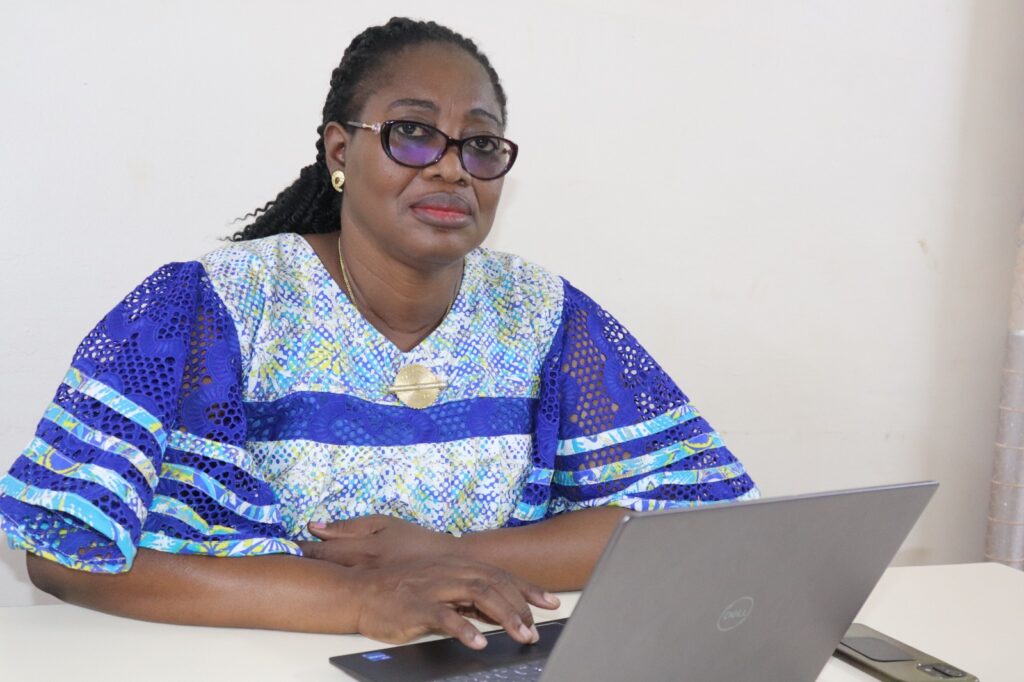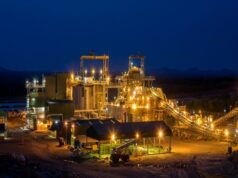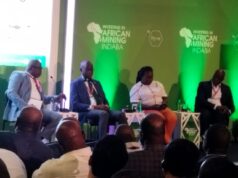The mining sector has long been perceived as a male sector. But an organisation, the Association of Women in the Mining Sector of Burkina Faso (AFEMIB), has been fighting since the early 2000s for the promotion of women’s rights in this sector. On the occasion of the celebration of International Women’s Day on 8 March, Minesactu.info gave the word to the head of training and communication of AFEMIB, Ms. Yé / Sawadogo Rachel. She presents the results achieved so far.
Minesactu.info: Why did you create AFEMIB?
Yé/Sawadogo Rachel: AFEMIB was created by women pioneers in the mining sector. These women felt the need to make their experiences available to others. AFEMIB contributes to the capacity building of women. It pushes women to take up positions of responsibility in the mining sector, taking into account the social and economic needs of women. The target was precisely women working in mining companies and women involved in mining crafts. Women are somewhat marginalized both in the mining companies and in the artisanal mining sector, because this sector is more or less considered a male sector. There are many more men in the mining sector, so AFEMIB wanted to contribute to the integration of women in the mining sector.
When was AFEMIB founded and who are its members?
AFEMIB was created in the 2000s but was recognised in 2004. All women who work in a mining company or in the mining industry are eligible for membership. So can those involved in the provision of goods and services in mining, students in mining, quarrying and geology, and all women who are interested in or have a connection with the mining sector.
The association now has as many women as girls. It is often said that all jobs lead to the mine because in the mine there are not only geologists and engineers. There are also other common jobs that are found in the mine. All the members of the association try to make their contribution to the improvement of women’s conditions both inside and outside the mine.
What are the missions and objectives of AFEMIB?
AFEMIB’s mission is to contribute to increasing women’s knowledge of the risks associated with working in the mines, especially in the artisanal mining sector.
It is also about increasing the representation and power of women in the extractive industry. Because women in the mines occupy low-level positions and AFEMIB wants to improve the representativeness of women in decision-making positions in the mines.
To achieve this, it advocates to the governments of the partners but also to the mining companies themselves so that all these parties integrate the gender dimension into the employment issue.
AFEMIB is a member of Woman In Mining in West Africa. Through this sub-regional organisation, it contributes to the establishment of a social dialogue with the States.

What are the main activities carried out by AFEMIB in favour of women in the artisanal and industrial mining sector?
In general, AFEMIB’s means of action are information, awareness-raising and communications. We also do advocacy, training and studies.
On a practical and technical level, the association has carried out several projects in the framework of women’s empowerment, and for this, we have partners such as the French and Canadian Embassies, the NDI.
In the mining commune of Boudry, for example, we have implemented a project to support women in their empowerment. We have also worked on the empowerment of women on the social cohesion aspect, which has been taken in favour of internally displaced people who are on the mining sites. One of the flagship projects that we have carried out is to advocate for the inclusion of women in the implementation of the Local Development Mining Fund since 2018. We wanted to see how women and young people could benefit from this fund intended for communities in a context where communal development plans had not taken the gender aspect into account.
On this International Women’s Day, what appeal can you make to young girls?
AFEMIB intervenes at the level of women’s empowerment and when we talk about empowerment, it also refers to employment.
There is a great need in the artisanal and industrial mining sector, as well as in the provision of goods and services. We encourage girls to dare to enter the mining sector. It is true that some people see the sector as a man’s sector because the work is hard, but women are succeeding in the sector and managing to make a good living. We think that they need to be courageous and know that when you enter the mining sector, you have to be up to the task. This is not a sector where you can do things by the book. It’s the quality of your work that will allow you to be on the same level as the men and have access to positions of responsibility.
“Daring’ means everything. As soon as a position of responsibility becomes available in a mine, people tend to say that women are not courageous or ready to go to the coals, or that they refuse responsibility. It is true that the social constraint on women, which is motherhood, can be a huge handicap for women. Managing the balance between home and work is also a major constraint, but I think that beyond the socio-cultural constraints, young girls must know that the mining sector is also for them and must seize the opportunities of the sector. Basically, I insist on the word “dare” because when a woman wants to apply, she is discouraged. In my case, they tried to discourage me but I entered the mining sector. I was able to become a pedagogical advisor. I moved on and became a project coordinator. After that I was assistant superintendent, which is still the number three position in the mine. This means that you can move up in the mine. I encourage girls to train and give themselves the means to make their way in the mining sector.

What is your final word?
Thank you to Minesactu.info for giving AFEMIB the opportunity to talk about its structure, to present its objectives, its missions and to reaffirm its commitment to the fight for the improvement of women’s conditions in the industrial and artisanal mining sector. We encourage and call on other women to join AFEMIB, which currently has all the skills.
Interview by Rachid Ouédraogo
#Mines_Actu_Burkina










